--
--
oooooooooooooooooooooooooooooooooooooooooooooooooooooooooooooooooooooooo
CRITICA EN EL PERIÓDICO "LA VANGUARDIA" (12-2-1964)
Un prestigio mítico rodea la figura de James Dean desde el día de su muerte un "misticismo" que probablemente es el que tiene menos fundamento de todos los creados por el cine, cuya breve historia es tan fecunda en mitos. Otro es el de Rodolfo Valentine. Ambas leyendas corresponden a las circunstancias de su tiempo, Valentino es el mito que responde a la época en que el cine buscaba galanes apuestos y Dean al tiempo en que los temas relacionados con la delincuencia juvenil y el gamberrismo hicieron irrupción tanto en el cine como en el teatro. Fueron sin dudas estas circunstancias las que hicieron suponer en James Dean una especie de encarnación típica del joven desquiciado y acomplejado, victima de los defectos de un estado social y una educación equivocada. Algo hay de esto, James Dean respondía en efecto al tipo físico del joven "dexase", y también, tenía unas vetas de gamberrismo psicológico. Cuando se mató en un accidente de carretera, parece que marchaba a una velocidad incompresible con la cordura. Este prestigio mítico, es decir, mas legendario que real, explica el interés con que ha sido acogidas sus películas a partir de su desaparición de este mundo, interés que no estaría justificado sólo por los méritos reales del actor. Si en "Al este del Edén" nos pareció encontrar en Dean, un actor interesante, con rasgos sobresalientes de originalidad, en "Rebelde sin Causa" no lo ha parecido mucho menos. Ni por actitudes de expresión, ni siquiera por su idea interpretativa del personaje. James Dean revela poseer el genio que se le había supuesto, lo que no quiere decir tampoco un mal actor. Nicholas Ray, no ha tenido mayor fortuna en la realización de la película juzgándola con un criterio de cierta indulgencia, habría que suponer que la causa de sus limitaciones hay que atribuida a que "Rebelde sin Causa" queda un poco alejada de su tiempo. La cinta fue rodada en 1955, y en los ocho años largos que median desde entonces, se han producido filmes sobre la juventud extraviada mejores. Ray ha embrollado la historia pensando hacer así mas interesante ha seguido la máxima de Nietzche de que hay que enturbiar las aguas para que parezcan más profundas. Y se ha atenida a esta teoría concertadamente. Sus personajes tienen mas de fantasía que de realidad y los casos clínicos de todos ellos mas de literatura que de psiquiatría. Por otra parte Ray, ha aplicado a la trama una técnica narrativa vigorosa y confusa, que solo alcanza muy aisladamente, aciertos fragmentados. Algunos de estos resultan muy brillantes sobre todo en el aspecto estético. En el film interviene el actor Sal Mineo que esta francamente bien en su papel y Natalie Wood, por entonces en uno de sus momentos más interesantes en su carrera artística, que más tarde ha llegado a ser resplandeciente, en "Rebelde sin Causa" tal vez por limitado de su papel, es discreta pero impregnada de evidente magnetismo personal. A. MARTÍNEZ TOMAS.
oooooooooooooooooooooooooooooooooooooooooooooooooooooooooooooooooooooooo
My favorite Nick Ray film
Nicholas Ray may be the most distinctive American director of the 1950s, and certainly the most deeply romantic. His career was marked by indiosyncratic stories about characters driven by deep internal conflicts, inward violence and outward sexual confusion. Rebel Without A Cause is the film where all of his themes meet, and slightly edges out Johnny Guitar and In A Lonely Place as my favorite Ray film.
Some people will certainly find the dialogue here to be rather stilted, and the performances melodramatic. I won't argue. Ray's films in general opposed 'realism' (that most unreal of artistic concepts) in favor of the mythic.
What's particularly satisfying about the film is its cohesiveness, binding together its many disparate events and characters with highly parallel themes and motifs. All of its central characters seem caught in psychosexual conflicts rife with familial gender conflict. Jim (James Dean) is caught between a weakling, effeminated father and a domineering but inneffectual mother. Judy (Natalie Wood) and her father are seperated by his uncomfortable relation to her sexuality. Plato (Sal Mineo), worst of all, is a practical orphan, who suffers all the more for his just under the surface homosexuality. (It's interesting to note here that Plato may be Hollywood's first sympathetic of a gay character.) All of them are driven by internal demons springing from these conflicts.
As usual, Ray is a remarkably sensitive photographer. And here he proves himself a master of color. There are too many beautiful scenes to mention here, but the planetarium scene (with the recorded voiceover about human loneliness) beginning of the 'chickie run' are both stunning.
The film seems divided between claustrophobic nightmares and utopian fantasies. The skewed camera angles of Jim's scenes with his parents contrast with the heavenly dream of teenage paradise in the abandoned house. The staircase motif seems to mark several of these transitions.
In any case, this is a stunning film by a consummate artist, and should certainly be viewed apart from the distorting lens of the James Dean myth. Dean, for his part, is remarkable here, although, as I stated above, the performances here are in a style far removed from what today's audiences are accustomed to.
It's quite silly to say, as several people have here, that this film's themes are 'dated'. They seem to be the constant themes of youth: idealism vs. cynicism, the turmoil of sexual awakening, the desire to fit in, and the internal violence that constantly threatens to become external. To say that these no longer apply because these kids have never heard of ecstasy or the crips is like saying that "Hamlet" no longer rings true because nobody swordfights anymore.
My one complaint about this film is with the title. Certainly quite dramatic, it sounds more like a marketing tagline than any kind of description of the goings on of this film. Jim seems less like a rebel than a young man caught in an inescapable turmoil, and his reaction to the final tragedy belies his lack of a cause. But this is a minor complaint, and I can recommend this film without reservation.
Some people will certainly find the dialogue here to be rather stilted, and the performances melodramatic. I won't argue. Ray's films in general opposed 'realism' (that most unreal of artistic concepts) in favor of the mythic.
What's particularly satisfying about the film is its cohesiveness, binding together its many disparate events and characters with highly parallel themes and motifs. All of its central characters seem caught in psychosexual conflicts rife with familial gender conflict. Jim (James Dean) is caught between a weakling, effeminated father and a domineering but inneffectual mother. Judy (Natalie Wood) and her father are seperated by his uncomfortable relation to her sexuality. Plato (Sal Mineo), worst of all, is a practical orphan, who suffers all the more for his just under the surface homosexuality. (It's interesting to note here that Plato may be Hollywood's first sympathetic of a gay character.) All of them are driven by internal demons springing from these conflicts.
As usual, Ray is a remarkably sensitive photographer. And here he proves himself a master of color. There are too many beautiful scenes to mention here, but the planetarium scene (with the recorded voiceover about human loneliness) beginning of the 'chickie run' are both stunning.
The film seems divided between claustrophobic nightmares and utopian fantasies. The skewed camera angles of Jim's scenes with his parents contrast with the heavenly dream of teenage paradise in the abandoned house. The staircase motif seems to mark several of these transitions.
In any case, this is a stunning film by a consummate artist, and should certainly be viewed apart from the distorting lens of the James Dean myth. Dean, for his part, is remarkable here, although, as I stated above, the performances here are in a style far removed from what today's audiences are accustomed to.
It's quite silly to say, as several people have here, that this film's themes are 'dated'. They seem to be the constant themes of youth: idealism vs. cynicism, the turmoil of sexual awakening, the desire to fit in, and the internal violence that constantly threatens to become external. To say that these no longer apply because these kids have never heard of ecstasy or the crips is like saying that "Hamlet" no longer rings true because nobody swordfights anymore.
My one complaint about this film is with the title. Certainly quite dramatic, it sounds more like a marketing tagline than any kind of description of the goings on of this film. Jim seems less like a rebel than a young man caught in an inescapable turmoil, and his reaction to the final tragedy belies his lack of a cause. But this is a minor complaint, and I can recommend this film without reservation.
oooooooooooooooooooooooooooooooooooooooooooooooooooooooooooooooooooooooooo
Just so far ahead of its time....
This film bears watching once every 5 years or so. It is astonishing on many levels, not least of which is the exploration of the underbelly of the happy suburban post-war years in middle class America.
This film bears watching once every 5 years or so. It is astonishing on many levels, not least of which is the exploration of the underbelly of the happy suburban post-war years in middle class America.
Yes, we all rave about the beautiful and sadly short lived life of James Dean who died before this movie opened. To die also in a manner highlit in this movie - he was co-incidentally a promo for it. Fast driving and fast cars. Poor James.
What I enjoy most though in all of it is the afore-mentioned exploration of hitherto fairly underdeveloped film themes in the America of the fifties. For one, there is the underlying homosexual element to the Sal Mineo character and his obsession with James. And here James is allowed to indulge and return this love, not overtly, but it is there, the tolerance and acknowledgment of it.
The character of Judy, played by Natalie Wood is also of tremendous interest. Here there is an incestuous component in her relationship to her father. It seems to me that the father is terrified of his attraction to his gorgeous daughter and keeps pushing her away to the degree that at one point he slaps her as she tries to kiss him. She escapes from home at every chance seeking male attention from wherever she can get it.
James' parents are a little overblown and too quickly resolved at the end. But the appearance of an "emasculated" Jim Backus (he wears an apron in case we don't quite get it!) is a sight for sore eyes. A little dated in the world of today but so far ahead of its time in 1955.
ooooooooooooooooooooooooooooooooooooooooooooooooooooooooooooooooooooooooooo
Not perfect, but still extraordinary
I was quite impressed with _Rebel Without a Cause_. I expected it to be quite standard, having only gathered its reputation because of the tragedy surrounding James Deans' death. Fortunately, it stood up on its own quite well. Its superficial situations are somewhat dated, which was inevitable, but its themes remain potent after many decades.
The major theme is the burgeoning relationship between adults and their teenage children. All three of the main characters are at different stages in this process. Jim (James Dean) is surprisingly at the earliest stage of this. His mother is pretty distanced and unresponsive already, but he still seems to communicate well with his father (Jim Backus, who is amazing. His character's relationship with his wife also provides an interesting view into 1950s gender politics; in one scene, Backus is wearing a cooking apron, which is very obviously meant for a woman). Judy (Natalie Wood, whom I didn't even recognize here) is almost completely rejected by her father, who feels that her affection is out of place in her teenage years. Worst of all is Plato, both of whose parents have left him alone in the world. He tries desperately to make Jim and Judy his parents (although from this vantage point in time, Plato seems resoundingly sexually attracted to Jim, and he sees Judy as a threat to their relationship. Although the writer/director has denied that forever, no human being can watch it nowadays without that thought constantly crossing their mind).
The reason that I say this film is flawed lies in the actions of Plato near the end of the film. I felt his escalating insanity was kind of a cop-out. Instead of actually delving into Plato's true character and motives by having intelligent and realistic dialogue and actions, he is just made to go batty, wherein he spouts off his thoughts as if he were some eight year old or man-child. Plato may have been sycophantic throughout the film, but he was anything but a moron. His actions provide an easy way for the director/writer to answer all questions about his character, and then to facilitate an ending which is tragic, but more than a little contrived.
ooooooooooooooooooooooooooooooooooooooooooooooooooooooooooooooooooooooooooo
James Dean Cult-Classic about "misunderstood" teens in 1950s
Brilliant cast of well-known Hollywood icons in hard-hitting treatment of story that focuses on the hopelessness exhibited by many middle-class teenagers who were too young to recall the pains of WWII, but saw daily reminders of the threat of "the bomb", as well as inequities around them.
James Dean stands out as the troubled kid whose parents keep "moving" to escape their community's effects of their son's strange behavior. Equally great are the performances of Natalie Wood as a "wanna-be-bad-girl" who is hurt by her parents' implications that she is a "tramp"; and the child-like Sal Mineo, who lives in a mansion with a maid, but feels the pains of neglect from never-present parents.
The trio first meet at a police station, where they all see a well-meaning officer who is genuinely interested in getting these troubled kids back on the right track rather than throwing the book at them. He does seem to reach James Dean, who seeks help after getting into more trouble.
The relationship between the James Dean character and that of Sal Mineo is somewhat elusive. At times a more than friendly association is suggested, then the appearance of Natalie Wood makes it look like an odd threesome. 1950s America was definitely unprepared for any "spelling out" of suggested terms, so for nearly 50 years now anyone's guess as to what was going on here is as good as the next.
The supporting cast include Jim Backus as James Dean's well-to-do yet wimpish and henpecked father as well as a young Dennis Hopper as a member of a greaser gang. The parade of big name stars in itself is eye-candy of the highest caliber! References to scientific findings are still awe-inspiring today. Showing young college students' reactions to film footage during a lecture shows that humans can't fully grasp the insignificance of earthly life compared to the vastness of the universe. Carefully watch the final scene as the end credits are shown, when this "point" is driven home.
Rebel Without A Cause is one of the great classics with a sociological impact that has seldom been reached by any film, and likely never surpassed. This film is a ceaseless source of discussions. I recommend this film also for high school History, Sociology or Language Arts classes.
ooooooooooooooooooooooooooooooooooooooooooooooooooooooooooooooooooooooooo
Indelible James Dean
With short, slicked-back hair, blue eyes and thick red lips, and dressed in a white T-shirt, blue jeans, and bright red jacket, James Dean creates a lasting visual impression as youthful Jim Stark, the prototype high school outsider, alone and troubled. Dean's on-screen persona, together with his vivid, intense performance, overwhelms all other elements in this film about 1950s teenage confusion and angst.
With short, slicked-back hair, blue eyes and thick red lips, and dressed in a white T-shirt, blue jeans, and bright red jacket, James Dean creates a lasting visual impression as youthful Jim Stark, the prototype high school outsider, alone and troubled. Dean's on-screen persona, together with his vivid, intense performance, overwhelms all other elements in this film about 1950s teenage confusion and angst.
Newly arrived in town, Jim Stark finds himself trapped in a typically hostile high school, and confronted by an in-crowd of leather-jacketed hoods with names like "Buzz", "Crunch", and "Goon". They challenge Jim's honor by calling him "chicken". What to do? Jim asks his weak, mealy-mouthed father (well played by Jim Backus). But his father is no help. Indeed, the film conveys a grim view of adults: self-indulgent, weak, insensitive, unobservant, and inept.
Then there's "Plato" (Sal Mineo), the high school kid who has always been alone, with no apparent father or mother. In Jim Stark, Plato has finally found a friend. Eventually, another student joins Jim and Plato. Judy (Natalie Wood) changes her caddy behavior toward Jim after an event changes her life. But it's still a hostile world, and the bond that these three young people form, as substitute family, is fleeting, en route to a poignant ending.
The film's characters and thematic tone are representative of a Cold War era in America when the threat of nuclear annihilation hovered over everyone and everything like the sword of Damocles. And thus, the story's astronomy motif amplifies a sense of loneliness, insignificance, isolation, and helplessness, so characteristic of the 1950s.
There are things about this film I do not care for. The compressed widescreen projection in "CinemaScope" is annoying. The music, which varies from jazz to rhythm and blues to nondescript noise, is too loud and too manipulative. And there's something vaguely contradictory about a macho James Dean in the role of Jim Stark, whom bullies pick on.
But none of these irritations can diminish the thematic depth of the story. Nor can they diminish the overpowering presence of James Dean, the actor, the perfect Hollywood symbol of youthful "cool", whom actors subsequently looked to as a model of acting excellence and cinematic charisma.
oooooooooooooooooooooooooooooooooooooooooooooooooooooooooooooooooooooooooo
Don't call me chicken...
The teenage years are a confusing time for anyone. You start to act different, think different, and realize that you are growing up and there is nothing you can do about it. For Jim Stark this is more than he can handle.
Nicholas Ray's classic Rebel Without a Cause is a look into the life of Jim Stark (James Dean) and his attempt to try and figure out what he wants to do with his life. Should he try to become an adult or should he enjoy what little time he has left and cut loose?
The movie opens with Jim after he has had a few too many drinks. After being taken to the police station his parents are brought in to help find out what he did and why he did it. His parents (Jim Backus and Ann Doran) are torn over what to do with him. The father is understanding but the mother wants him to learn his lesson and make sure it does not happen again. Their fighting is "tearing him apart!".
Also at the station is Judy (Natalie Wood) and John "Plato" Crawford (Sal Mineo). Jim offers his coat to Plato but he refuses. It was just a kind gesture, but given Plato's emotional state, it is a justified response.
The next day is Jim's first day at his new school. He leaves the house in a good mood, telling his parents how this might be it for him. After meeting Judy, who appears to be unfazed by the incident she had in the police station, Jim is off to school where he learns of a field trip for that afternoon to the planetarium.
It is hear where he encounters Buzz, the leader of the "cool" crowd. After slashing Jim's tires, it's "examination time", or a little knife fight. No jabbing, just sticking. Jim almost loses it but keeps his cool. Buzz challenges Jim to a "chicee race" at the bluffs. Jim accepts having no idea what that is.
The events that follow are like a wild goose chase for Jim and his new friends. They go everywhere from the bluffs, to an abandoned mansion, and the planetarium. It's a wonderfully written script using great dialogue between Jim and his parents. The camera work is also a magnificent display, using great angles and unique shots. Ray had the perfect vision of what he wanted his film to look like.
Color is often used to showcase significance or symbolize a certain aspect of the film. Jim's red jacket, Judy's red coat in the beginning, and Buzz and all his cronies where black leather coats.
Dean's performance is remarkable. It is a shame he was only featured in 3 films, none the less, he is one of America's icons. He symbolizes what every guy wants to be. He is not the only good performer. Backus gives a tremendous performance as the father, the understanding, somewhat lenient parent of Jim Stark. Wood and Mineo both received Oscar nominations and both were well deserved.
As mentioned earlier, these are the most confusing years for a teenager. One scene that says it perfectly is after the knife incident when Jim comes home. He walks up the stairs to find what appears to be his mother in an apron cleaning up. It turns out to be his father cleaning up the food he spilled for his wife who is a little under the weather. They both laugh and Jim tells him to leave the food so she can see it. The father doesn't understand and Jim just keeps telling him to. He gets flustered and walks away. He stutters and just can't give a straight answer to his father. This is a perfect comparison to much of Jim's life. He does something but cannot explain it.
Rebel Without a Cause is a classic from the 1950's. A movie that to this day is a perfect example of how each new generation is as rebellious as the one before it.
Nicholas Ray's classic Rebel Without a Cause is a look into the life of Jim Stark (James Dean) and his attempt to try and figure out what he wants to do with his life. Should he try to become an adult or should he enjoy what little time he has left and cut loose?
The movie opens with Jim after he has had a few too many drinks. After being taken to the police station his parents are brought in to help find out what he did and why he did it. His parents (Jim Backus and Ann Doran) are torn over what to do with him. The father is understanding but the mother wants him to learn his lesson and make sure it does not happen again. Their fighting is "tearing him apart!".
Also at the station is Judy (Natalie Wood) and John "Plato" Crawford (Sal Mineo). Jim offers his coat to Plato but he refuses. It was just a kind gesture, but given Plato's emotional state, it is a justified response.
The next day is Jim's first day at his new school. He leaves the house in a good mood, telling his parents how this might be it for him. After meeting Judy, who appears to be unfazed by the incident she had in the police station, Jim is off to school where he learns of a field trip for that afternoon to the planetarium.
It is hear where he encounters Buzz, the leader of the "cool" crowd. After slashing Jim's tires, it's "examination time", or a little knife fight. No jabbing, just sticking. Jim almost loses it but keeps his cool. Buzz challenges Jim to a "chicee race" at the bluffs. Jim accepts having no idea what that is.
The events that follow are like a wild goose chase for Jim and his new friends. They go everywhere from the bluffs, to an abandoned mansion, and the planetarium. It's a wonderfully written script using great dialogue between Jim and his parents. The camera work is also a magnificent display, using great angles and unique shots. Ray had the perfect vision of what he wanted his film to look like.
Color is often used to showcase significance or symbolize a certain aspect of the film. Jim's red jacket, Judy's red coat in the beginning, and Buzz and all his cronies where black leather coats.
Dean's performance is remarkable. It is a shame he was only featured in 3 films, none the less, he is one of America's icons. He symbolizes what every guy wants to be. He is not the only good performer. Backus gives a tremendous performance as the father, the understanding, somewhat lenient parent of Jim Stark. Wood and Mineo both received Oscar nominations and both were well deserved.
As mentioned earlier, these are the most confusing years for a teenager. One scene that says it perfectly is after the knife incident when Jim comes home. He walks up the stairs to find what appears to be his mother in an apron cleaning up. It turns out to be his father cleaning up the food he spilled for his wife who is a little under the weather. They both laugh and Jim tells him to leave the food so she can see it. The father doesn't understand and Jim just keeps telling him to. He gets flustered and walks away. He stutters and just can't give a straight answer to his father. This is a perfect comparison to much of Jim's life. He does something but cannot explain it.
Rebel Without a Cause is a classic from the 1950's. A movie that to this day is a perfect example of how each new generation is as rebellious as the one before it.
ooooooooooooooooooooooooooooooooooooooooooooooooooooooooooooooooooooooooooooooooo
A Tale Of Three Misfits
In his three film trilogy James Dean worked with three of the best directors around, George Stevens in Giant, Elia Kazan in East of Eden, and Nicholas Ray for Rebel Without A Cause. The first two films came from the inspiration of two of the best American writers of the last century, Edna Ferber and John Steinbeck. But in Rebel Without A Cause the inspiration was director Nicholas Ray himself who wrote was nominated for an Oscar for Best Original Story for the screen.
The Fifties was certainly the era for those rebel type films, but Rebel Without A Cause is unique because it deals with these bored upper middle class kids. It's as different a film as The Wild One with Marlon Brando and those working class biker types or the urban school kids of The Blackboard Jungle as you can get. The problems of this crowd just don't seem as serious as those in the other two films.
But because of the quality performances of James Dean, Natalie Wood, and Sal Mineo you do sort of feel for these kids. Dean is a misfit like he was in East of Eden, in fact his parents have just moved because of trouble he'd gotten into in his previous school. Unlike in East of Eden where Dean had this almost godlike father in Raymond Massey who he felt he couldn't measure up to, in Rebel Without A Cause he's dealing with Jim Backus who's an ineffectual henpecked sort with Ann Doran and her mother, Virginia Brissac. Dean himself was raised by an aunt and uncle in Indiana so he could identify with both Cal Trask and Jim Stark. Come to think of it you could include Jett Rink in there as well.
Natalie Wood also has father problems, William Hopper who just doesn't know how to deal with the fact that 'daddy's little girl' is blossoming into womanhood. Her mother, Rochelle Hudson, is one of those who looks like she's suffering a permanent headache and has abandoned the family ship to dear old dad. It's more an absence of mother and Hopper trying to do both roles which he just can't handle.
But Dean and Wood have parents. Sal Mineo is being raised by the maid in his very wealthy home. He's got all the material things, but he's a rather geeky kid who just doesn't fit in. He's also experiencing latent homosexuality in an age where that was the worst thing on the planet to be and no visible gay community to tell you it wasn't. By the way Marietta Canty as the maid is outstanding in this film, she's miles away from the maid roles of Louise Beavers and Hattie McDaniel.
So these three find each other and find a gang of kids who race their expensive automobiles against each other for speed and against each other for daring in the famous 'chicken run' scene. When the gang leader Corey Allen is killed racing against Dean, he becomes a kind of martyr to them and trouble brews for our three misfits.
Both Natalie Wood and Sal Mineo were nominated for Best Supporting Actress and Best Supporting Actor. Wood lost to Jo Van Fleet from that other James Dean classic East of Eden and Mineo lost to Jack Lemmon in Mr. Roberts. As for Dean he was up that year posthumously for East of Eden.
It wasn't only James Dean's tragic death that made him a legend. He was getting acclaim for his performance in East of Eden when he was killed on September 30, 1955. His stunning impact came after his death as fans were mesmerized by the promise of things to come in Rebel Without A Cause which came out about four weeks later and with Giant which Dean had just wrapped shooting on. This dead actor had film fans talking everywhere right up to the Oscars of 1957 ceremony where he was nominated for 1956's Giant. If ever a player left the scene with fans begging for more it was James Dean.
Seen today over 50 years later Rebel Without A Cause still remains the ultimate film in teen angst. I think it's destined to be so for generations to come.
ooooooooooooooooooooooooooooooooooooooooooooooooooooooooooooooooooooooooooo
--
OOOOOOOOOOOOOOOOOOOOOTHER PAGES IN ENGLISH
OOOOOOOOOOOOOOOOOOOOOOOOOOOOOOOOOOOOOOOOOOOO
MY WEB PAGE TO NATALIE WOOD MOVIES








.png)

.jpg)


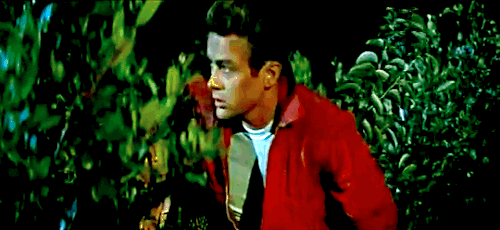



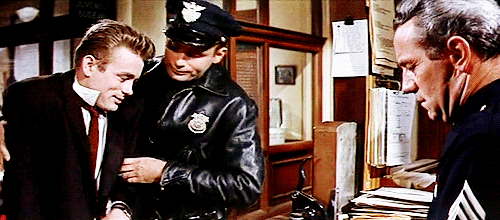
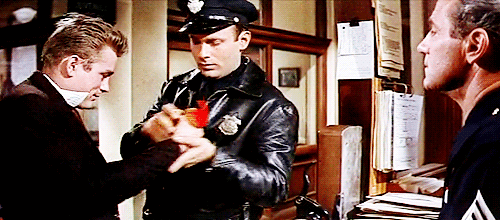
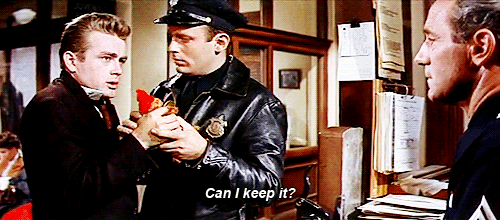
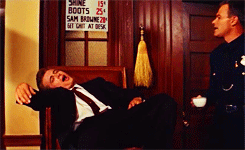
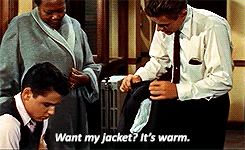


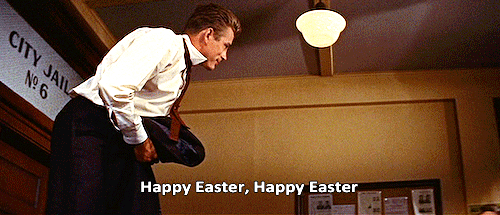
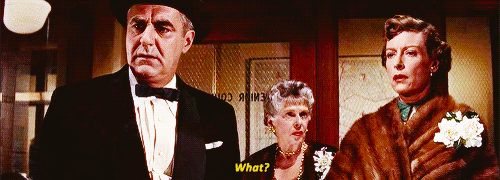
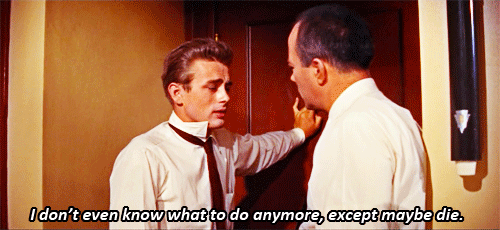
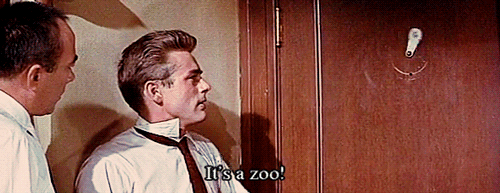
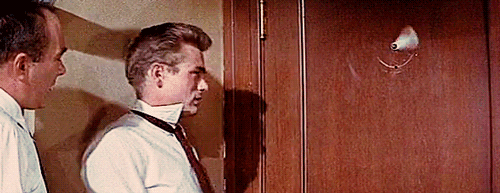
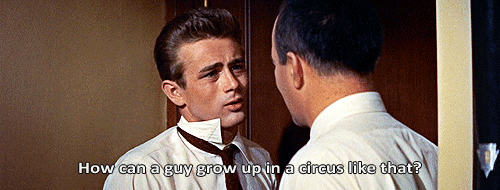
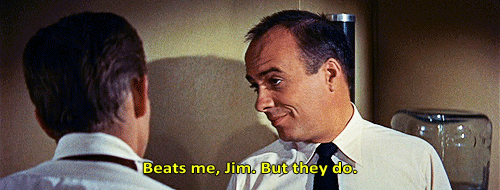
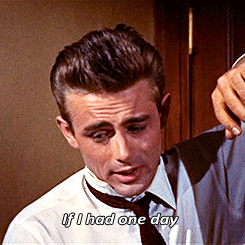
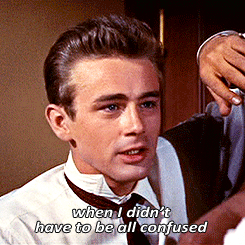
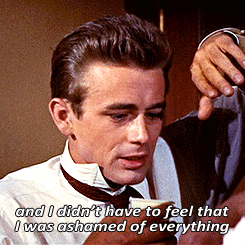
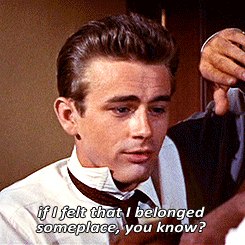
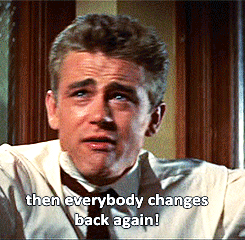
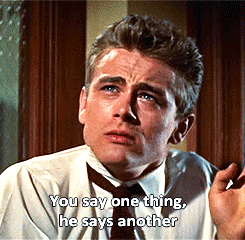
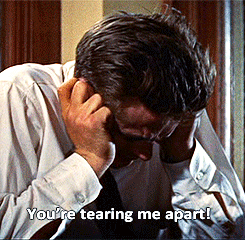
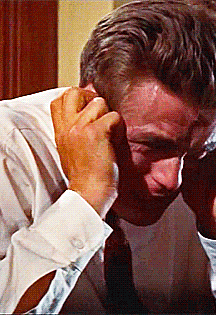
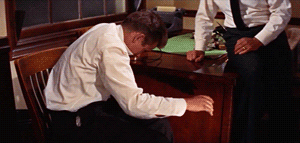
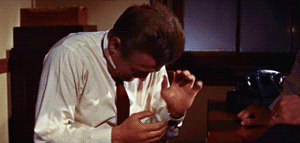

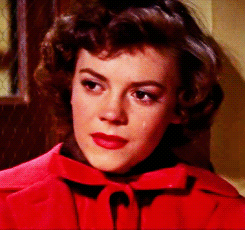
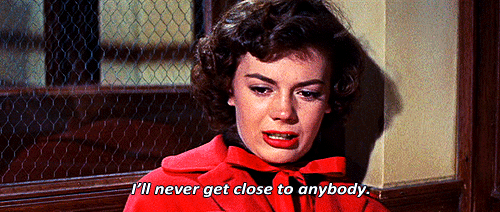
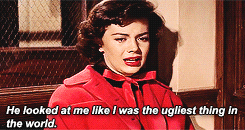
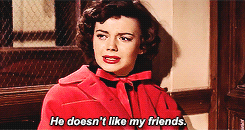

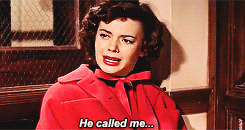
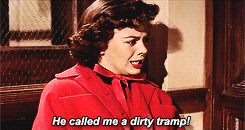
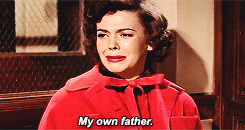
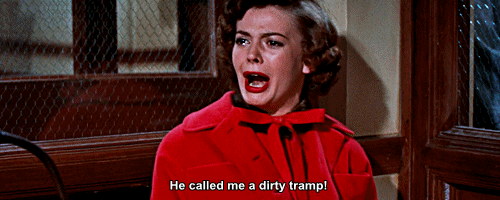
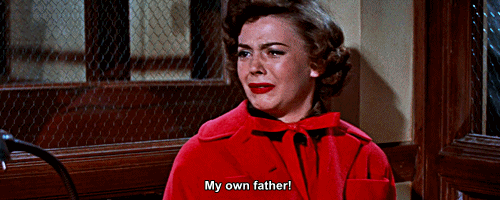


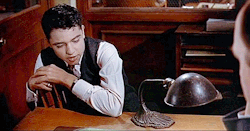
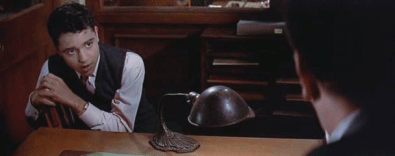

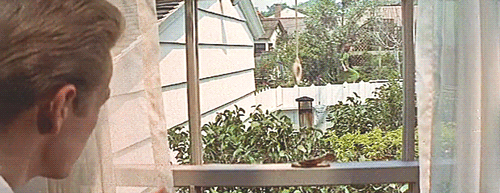

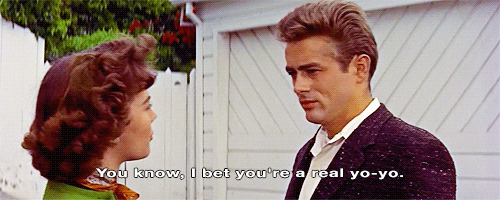
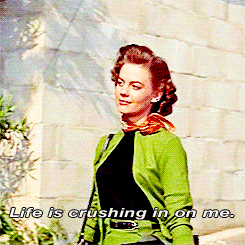
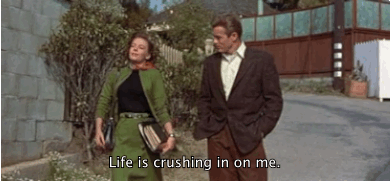
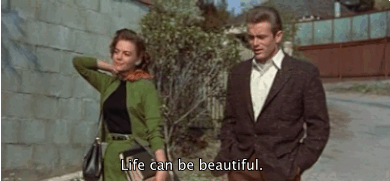
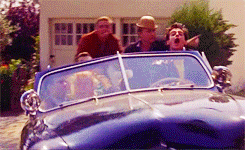







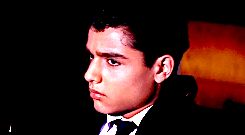
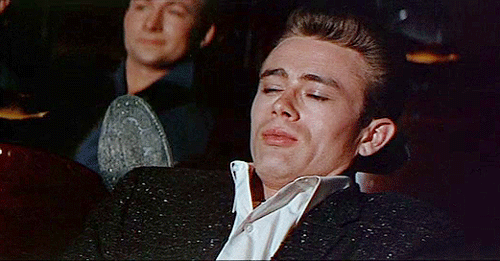
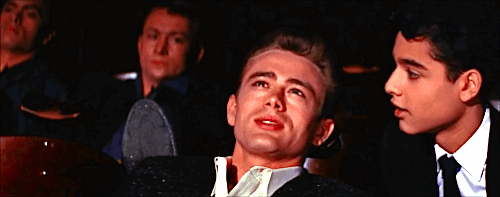
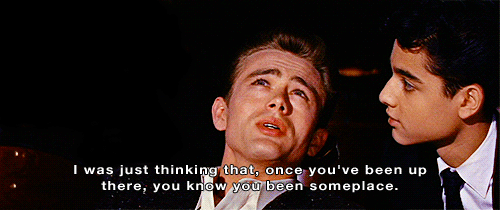
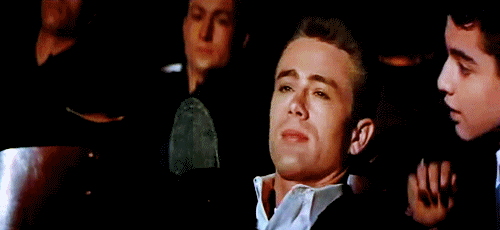
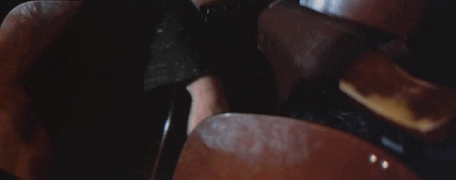

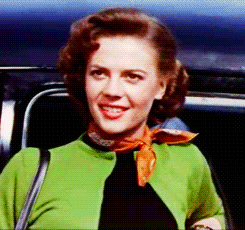

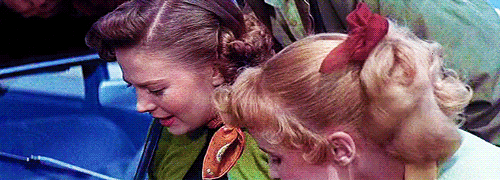
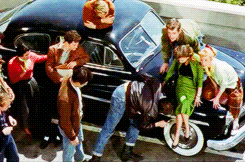
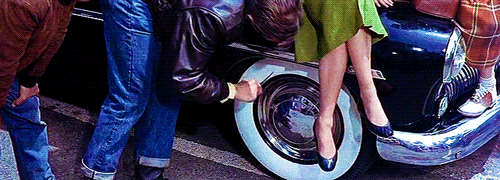
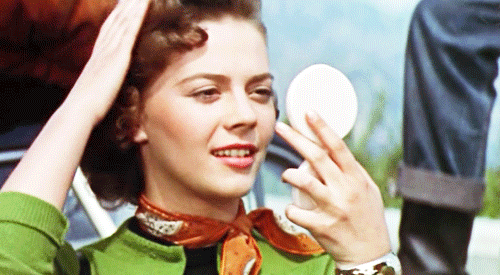
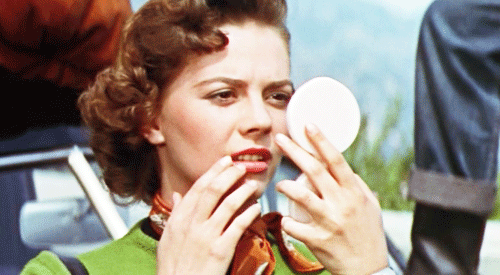



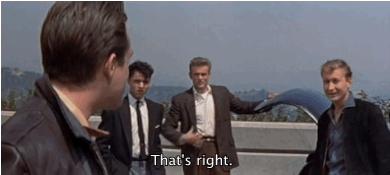
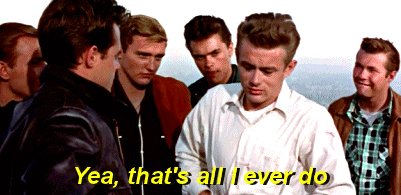
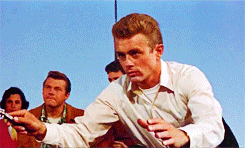
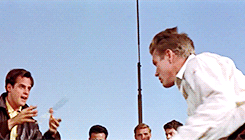


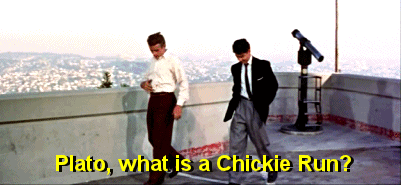
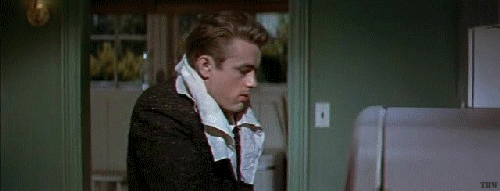
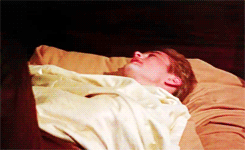
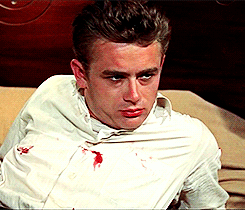
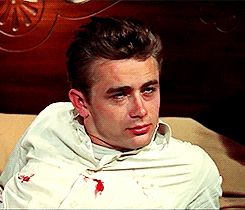

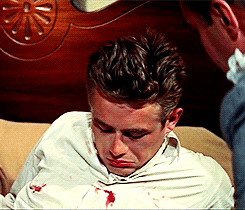
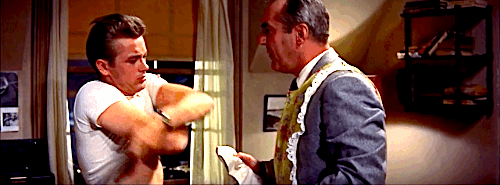
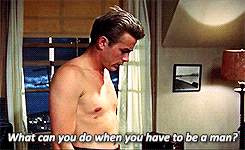
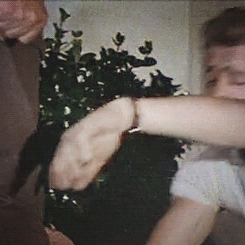
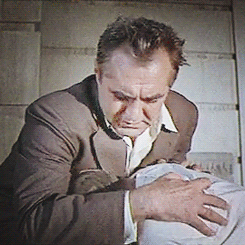
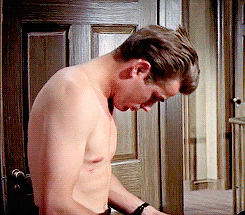
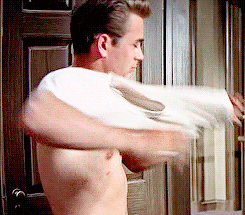

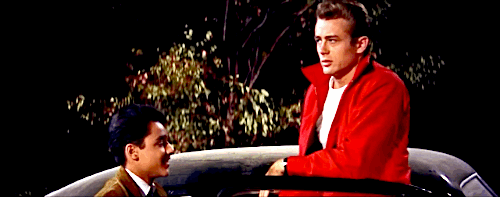
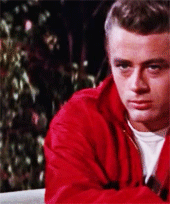

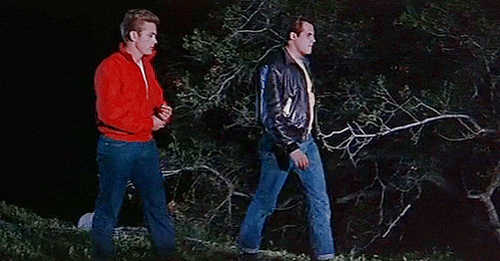
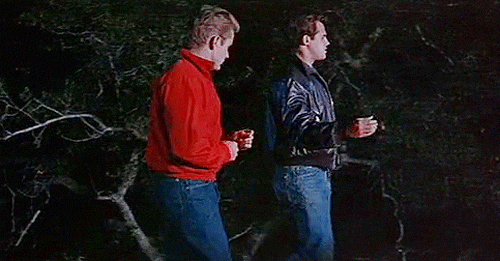
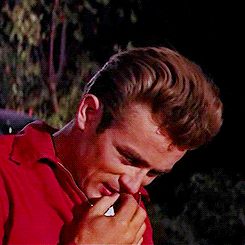
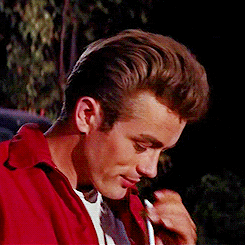
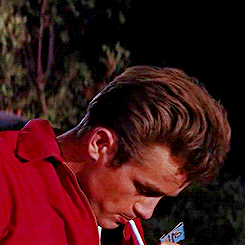


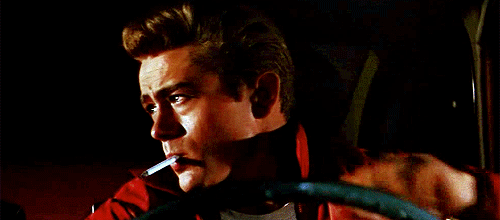
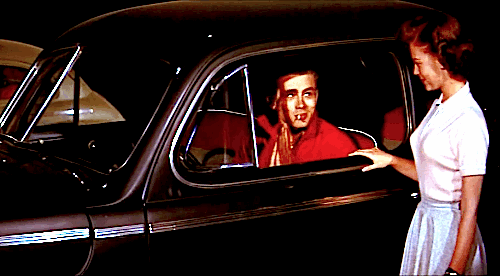
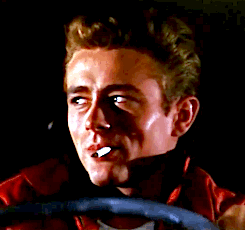
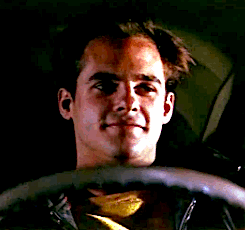

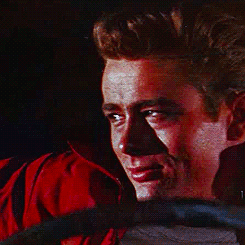
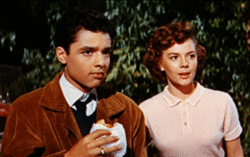


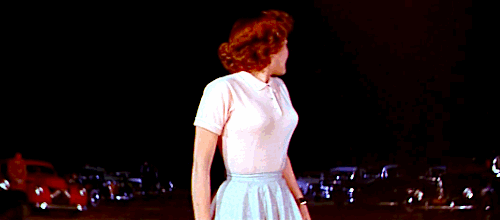
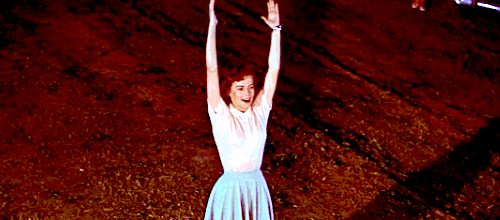
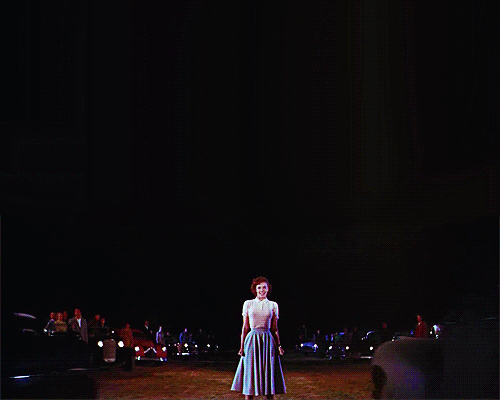
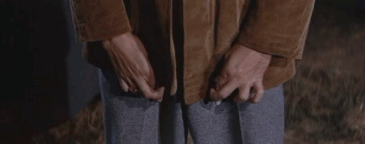


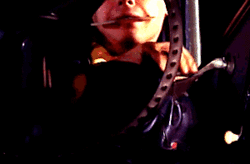
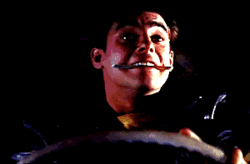


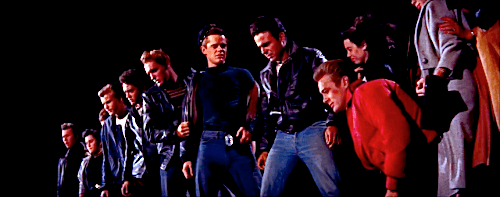
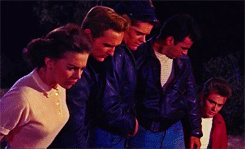
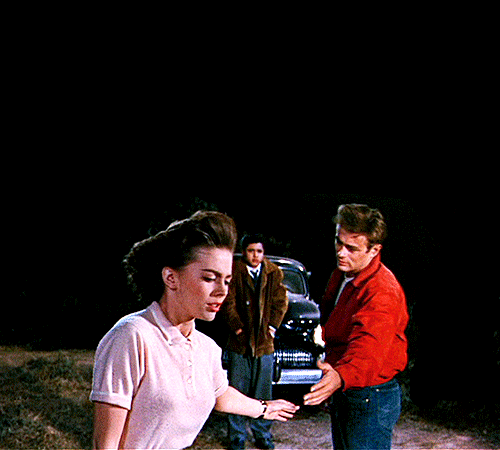


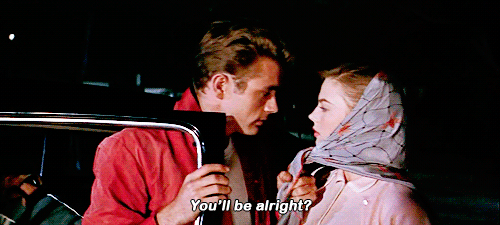
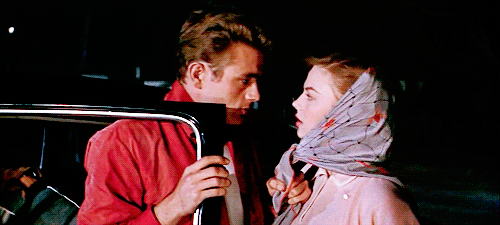
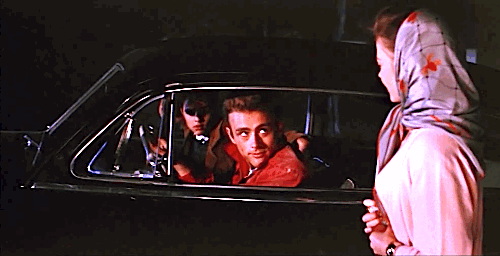
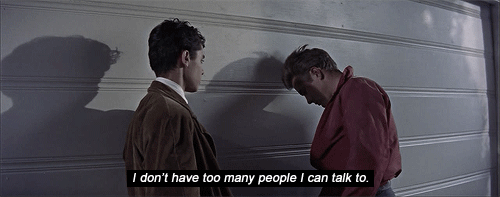

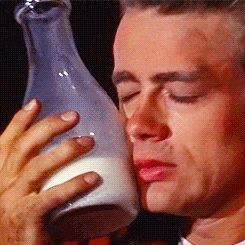
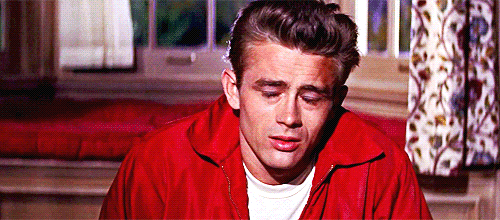
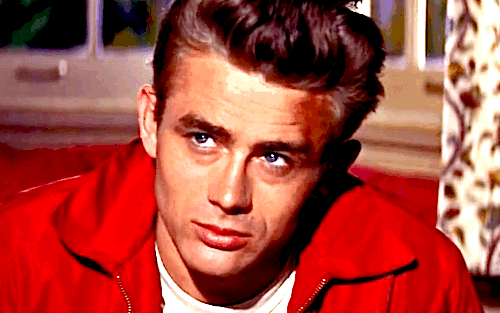

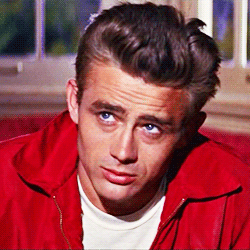
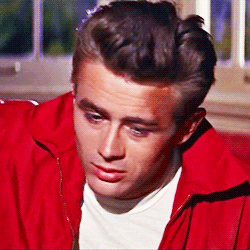
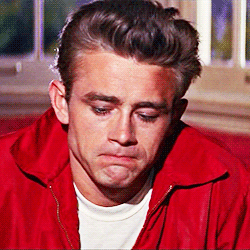
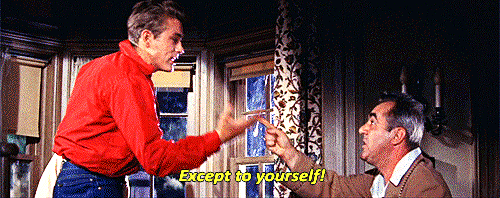
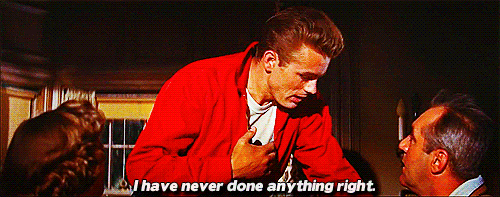
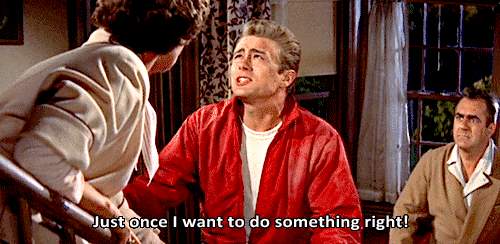
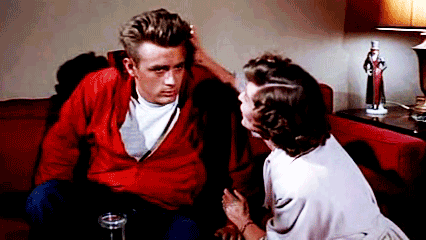
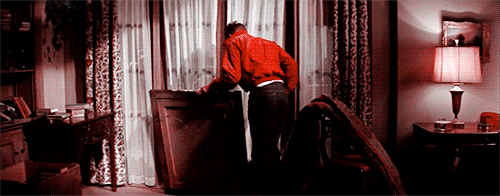
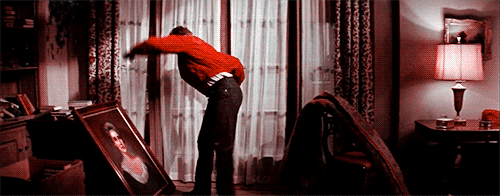
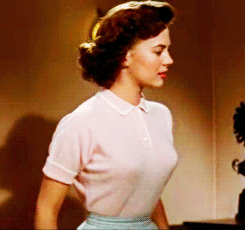
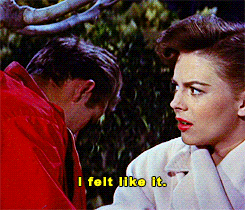
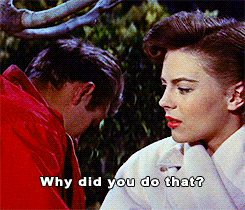
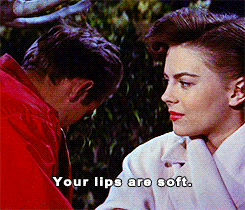
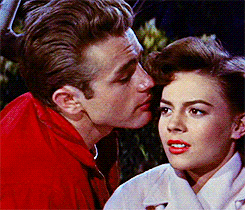
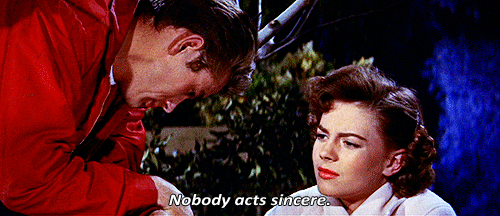
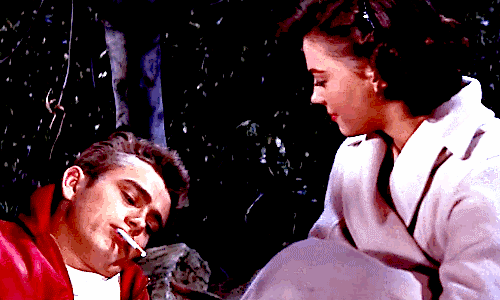
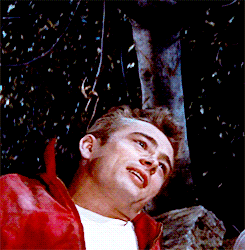
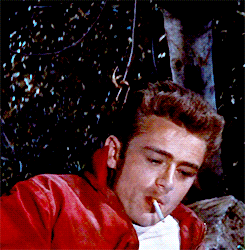
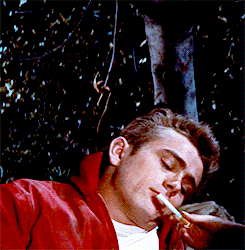

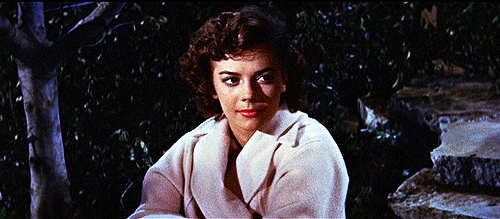
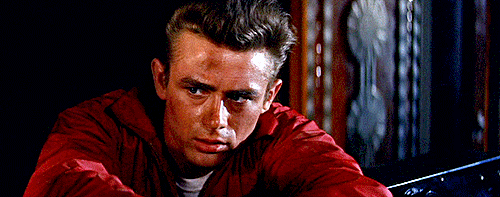
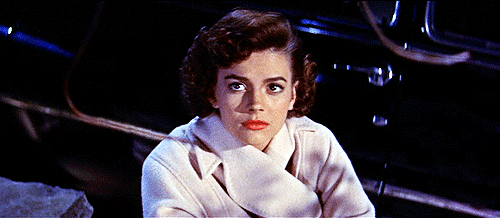
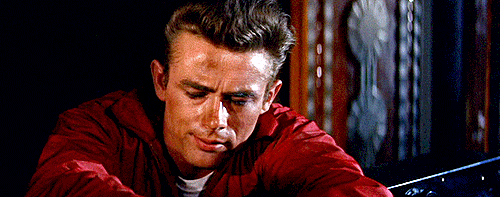
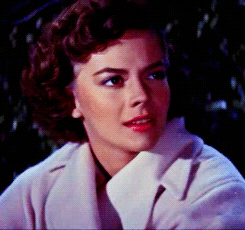
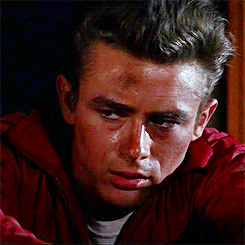
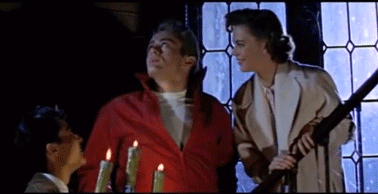
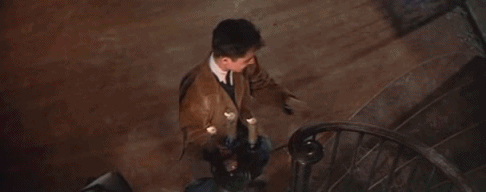
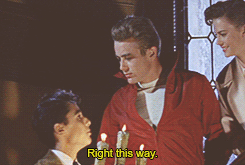
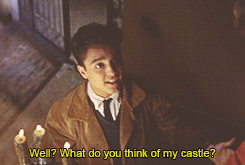
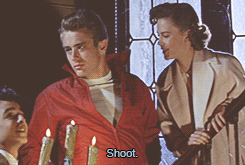
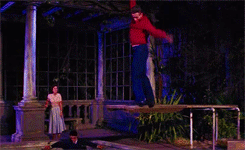
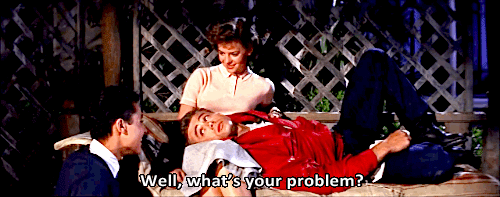
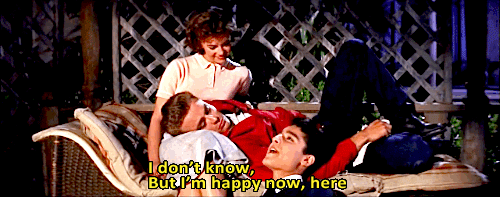
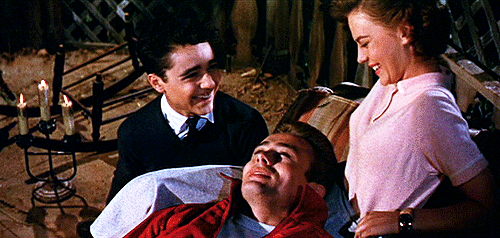
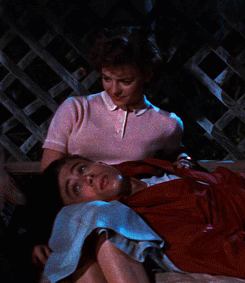
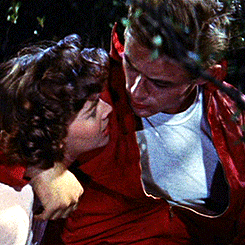

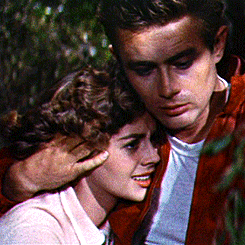
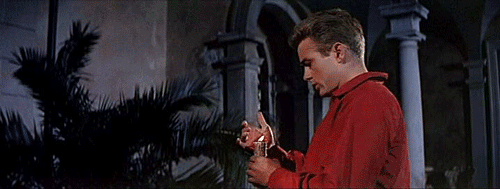
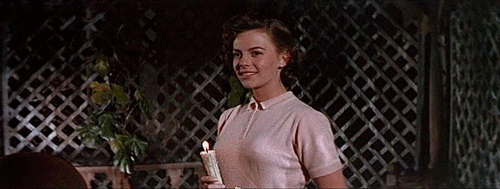

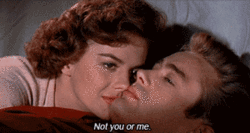
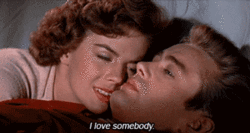
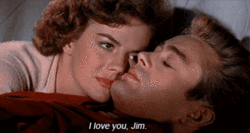
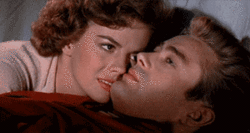
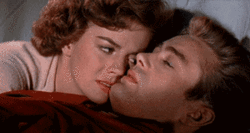
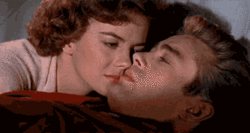

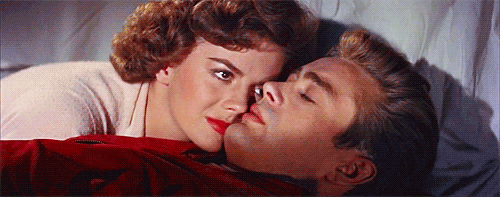




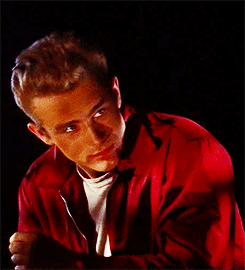
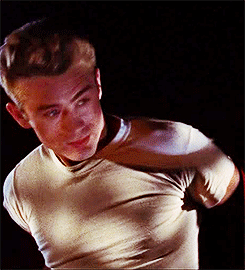
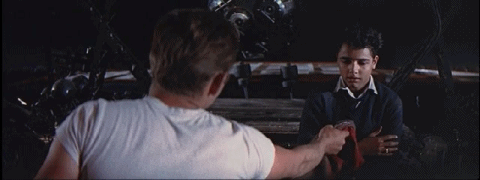
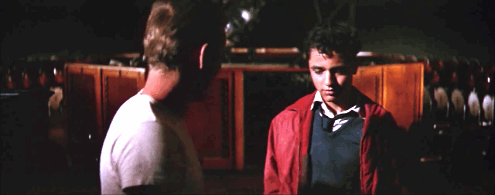
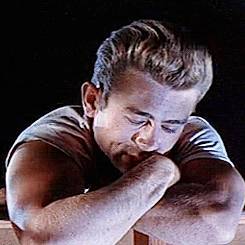
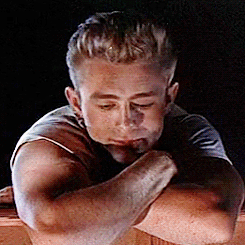


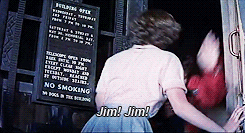
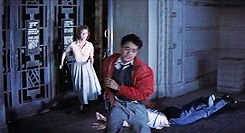

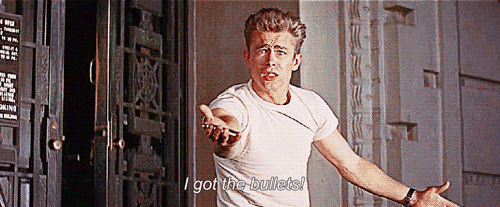

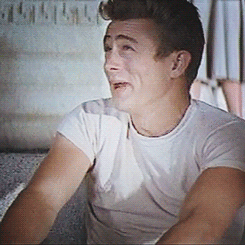
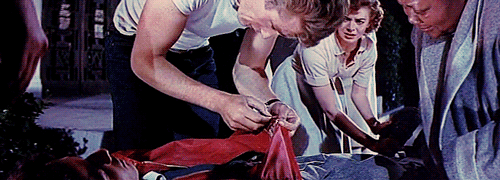
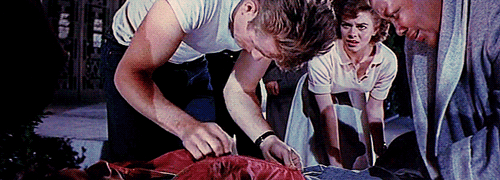
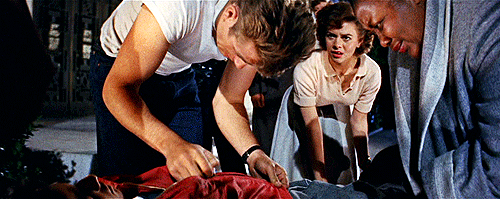
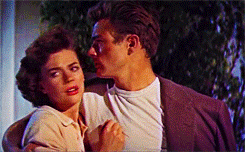


+-+copia.jpg)
+-+copia.jpg)



































.jpg)







.jpg)





.png)




.jpg)






.jpg)













.jpg)


.jpg)










.jpg)



.jpg)

.gif)

.jpg)



.jpg)

















.jpg)
.jpg)

.jpg)
.jpeg)